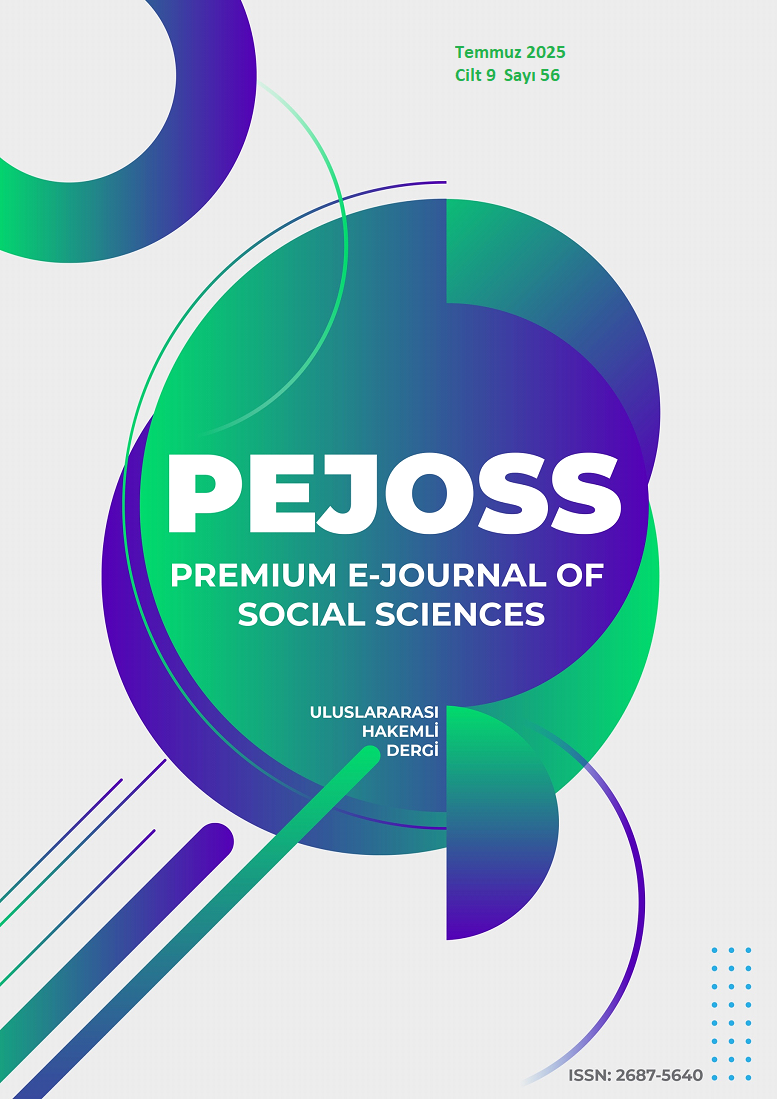The Mediatory Role Of Organizational Culture In The Effect Of Job Satisfaction On Employee Performance And A Research On It
DOI:
https://doi.org/10.5281/zenodo.15742036Keywords:
Satisfaction, Job Satisfaction, Organizational Commitment, Culture, Organizational CultureAbstract
In today's competitive business world, the relationship between employee job satisfaction and performance is of strategic importance for businesses. While high job satisfaction increases employee motivation and contributes to a more productive and effective workforce, low job satisfaction can lead to performance losses and increased workforce turnover. In this context, organizational culture is considered a critical mediator variable in the relationship between job satisfaction and employee performance. Organizational culture is a structure that includes the values, norms, beliefs and behavioral patterns of the business and is one of the basic elements that shape the attitudes and behaviors of employees in the work environment. The main purpose of this study is to deeply examine the effect of job satisfaction on employee performance and the mediator role of organizational culture in this effect. Today, the continuity of businesses and the achievement of competitive advantage largely depend on the efficient use of human resources. In this context, the satisfaction that employees feel from their jobs and the reflection of this satisfaction on performance have become one of the starting points for institutions. However, the critical mediator role played by organizational culture in this relationship between job satisfaction and employee performance has not been sufficiently addressed in the literature. This research aims to understand how organizational culture plays an effective mediator variable role in the relationship between job satisfaction and employee performance. The survey technique was used as a method and data obtained from individuals working in different sectors were analyzed. As a result of the research, it was revealed that as job satisfaction increased, employee performance also increased significantly. However, it was also determined that the effect of job satisfaction on performance remained limited in cases where this increase was not supported by the organizational culture.
Downloads
References
Alvesson, M. (2000). Understanding organizational culture. Sage Publications.
Bilgin, K. U., & Sevim, V. (2022). Kamu personeli bireysel performans değerlendirmesi: Ağırlıklı performans puanlama modeli. KMÜ Sosyal ve Ekonomik Araştırmalar Dergisi, 42, 257–258.
Deal, T. E., & Kennedy, A. A. (1982). Corporate cultures: The rites and rituals of corporate life. Addison-Wesley.
Denison, D. R., & Mishra, A. K. (1995). Toward a theory of organizational culture and effectiveness. Organization Science, 6(2), 204–223.
Eren, E. (2010). Stratejik yönetim ve işletme politikası (10. baskı, ss. 445–446). Beta Yayıncılık.
Gümrükçü, D. M. (2016). Örgütlerde takım performansında liderin rolü: Bankacılık örneği (Yayımlanmamış yüksek lisans tezi). Gazi Üniversitesi.
Helvacı, A. (2002). The importance of performance appraisal in performance managament process, Ankara University Journal of Faculty of Educational Sciences (JFES), 35(1), 155-169
Hofstede, G., Neuijen, B., Ohayv, D. D., & Sanders, G. (1990). Measuring organizational cultures: A qualitative and quantitative study across twenty cases. Administrative Science Quarterly, 35(2), 286–316.
Işığıçok, E. (2008). Performans ölçümü, yönetimi ve istatistiksel analizi. Ekonometri ve İstatistik Dergisi, 7, 5.
Judge, T. A., & Klinger, R. (2008). Job satisfaction: Subjective well-being at work. In M. Eid & R. J. Larsen (Eds.), The science of subjective well-being (pp. 393–413). The Guilford Press.
Karakuş, Ç. (2019). Çalışma hayatında iş tatmini ve iş stresi: Özel bir hastanede çalışan hemşireler üzerine bir araştırma. Kırşehir Ahi Evran Üniversitesi İktisadi ve İdari Bilimler Fakültesi Dergisi, 3(1), 93.
Keser, A., & Öngen Bilir, K. B. (2019). İş tatmini ölçeğinin Türkçe güvenilirlik ve geçerlilik çalışması. Kırklareli Üniversitesi Sosyal Bilimler Dergisi, 3(3), 229–239.
Koçel, T. (2010). İşletme yöneticiliği (13. baskı). Beta Basım Yayın.
Martin, J., & Siehl, C. (1983). Organizational culture and counterculture: An uneasy symbiosis. Organizational Dynamics, 12(2), 54.
Orhan, E. (2019). Liderlik algısının iş tatmini üzerine etkileri; Fırat Üniversitesi örnek çalışması. Fırat Üniversitesi İktisadi ve İdari Bilimler Dergisi, 3(2), 254.
Sargut, M. (2020). İş tatmini ile yaşam tatmini arasındaki ilişki ve uygulama. Vestnik Bishkek Humanities University, 3.
Şimşek, A. (2014). Örgüt kültürü: Kuramsal bir bakış. Çağdaş Yönetim Bilimleri Dergisi, 1(1), 19.
Türk, M. S. (2007). Örgüt kültürü ve iş tatmini. Özkan Matbaacılık.
Uysal, Ş. (2015). Performans yönetimi sisteminin tanımı, tarihçesi, amaç ve temel unsurlarına genel bir bakış. Electronic Journal of Vocational Colleges, 5(2), 33.
Yahyagil, M. Y. (2004). Denison örgüt kültürü ölçme aracının geçerlilik ve güvenirlik çalışması: Ampirik uygulama. Yeditepe Üniversitesi Yönetim, 47, 53–76.
Yıldırım, M. (2023). Kamu yönetiminde amaçsallaşan performans düşüncesi: Literatürün eleştirel bir çözümlemesi. Ankara Üniversitesi Siyasal Bilgiler Fakültesi Dergisi, 78(2), 204.
Downloads
Published
How to Cite
Issue
Section
License
Copyright (c) 2025 Premium e-Journal of Social Science (PEJOSS)

This work is licensed under a Creative Commons Attribution 4.0 International License.


